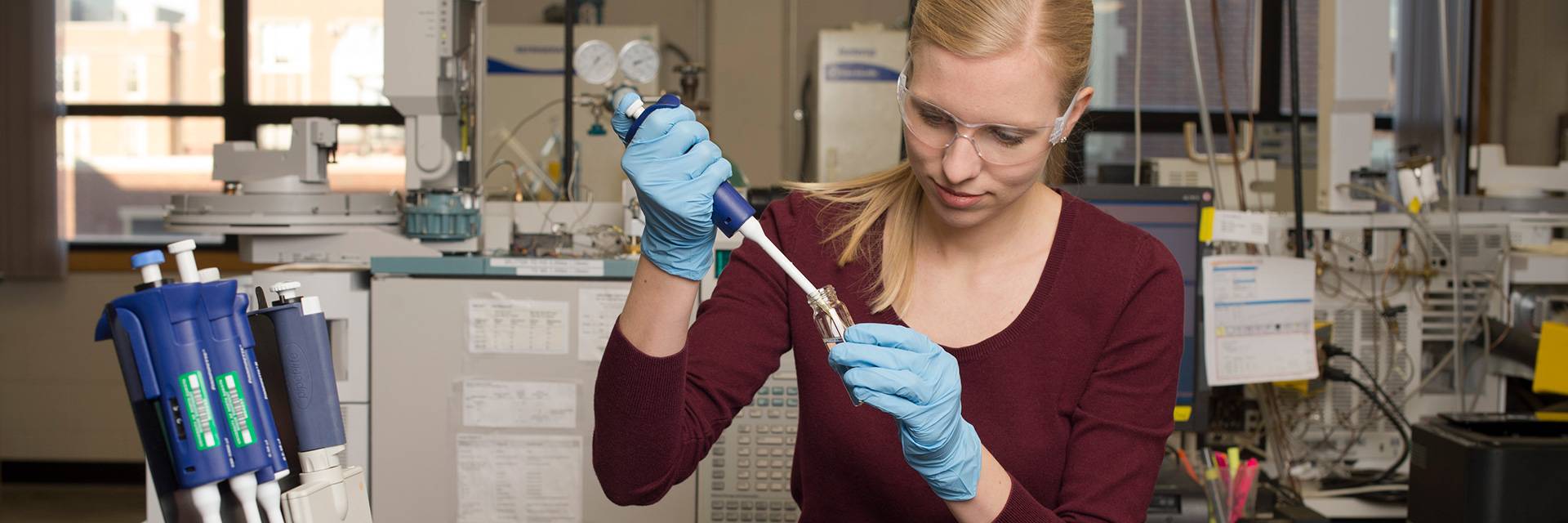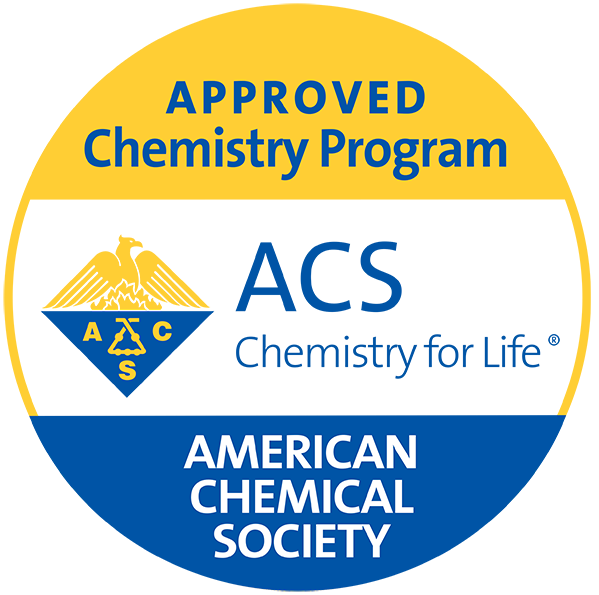
Department of Chemistry

The UND chemistry program is approved by the American Chemical Society (ACS) Committee on Professional Training. There are degree paths available that can prepare you for employment or graduate study in chemistry, or in health-related fields, or for science teaching. The program is supported by a wide variety of instrumentation. Many opportunities for undergraduate research are available, often leading to co-authorship on professional publications.
Chemistry Programs
Undergraduate Chemistry
- Chemistry (B.S.)
- The B.S. in Chemistry (ACS-certified) provides excellent preparation for graduate or professional work in chemistry.
- The B.S. with a major in Chemistry includes options for emphasis in Physical Science and Biochemistry, both of which provide flexibility in choosing electives.
- Chemistry Minor
Combined or Accelerated Chemistry Degree
Chemistry Graduate Degrees
- Chemistry (M.S.) Thesis or Non-Thesis options
- Chemistry (Ph.D.)
Events
more EventsChemistry Department Mission Statement
Chemistry is the central science, and so the Department plays a pivotal role in advancing the mission of the University of North Dakota. Our Department occupies a unique niche as one of the smaller Ph.D.-granting programs in the country. As such, this enables us to accomplish nationally and internationally significant research and yet allows us to give individualized graduate education in the context of vibrant, externally supported research. We also provide outstanding chemical education for a large fraction of the UND student body through service courses and for chemistry majors with a variety of emphases.
The active participation of most of our faculty members in research facilitates the transfer of cutting-edge knowledge to the classroom, and the strong commitment of our faculty to teaching produces a solid foundation of learning for both majors and non-majors alike. Implementation of high impact practices such as experiential learning through active participation in research by both undergraduate and graduate students will continue to be a hallmark of our Department. We impact the economic development of the state and region as a direct consequence of grant activity, with our service and community work, and by educating and training students to become successful alumni who assume leadership positions in regional industries. We respect and value the individuality of faculty members with regard to research, teaching, and service contributions while accomplishing the overall mission of the Department.